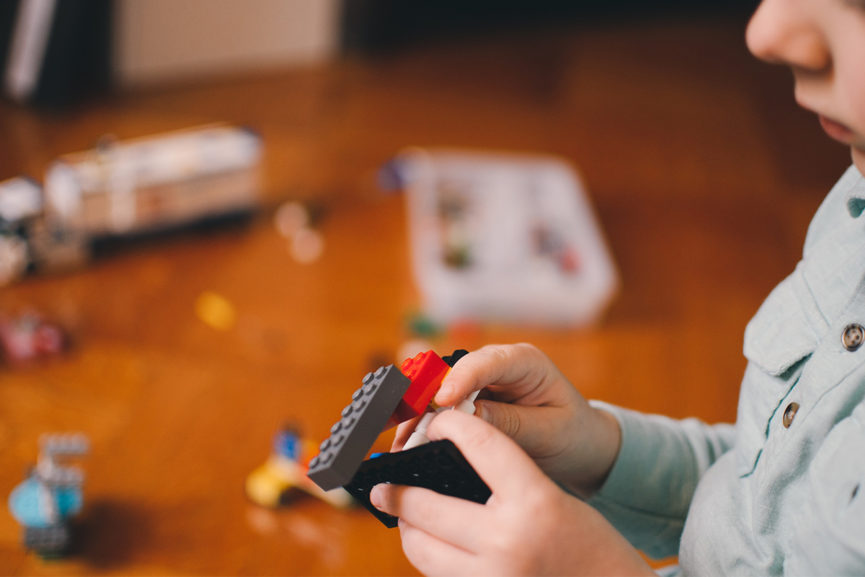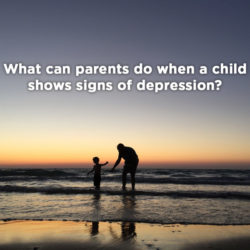All children are born with distinct qualities, including their ability to progress at their own pace. And generally, children develop within an expected time frame. When a sign of growth is seen, it is celebrated as a milestone. But sometimes, a child may miss some growth milestones that tend to cause some parents to worry.
Whether your child’s development shows up around the expected age, or takes unusually longer to manifest, your child will benefit most when you take precautionary steps as you notice something is not quite “right”. Take courage. Rather than make false assumptions, or live with regret later, seek measures to dispel your worries. Here are some guidelines to raise parental awareness and encourage parents on how to respond to developmental issues that might be observed in a child.
How to know a child’s development is within the expected age
Educate yourself with children’s monthly and yearly expected growth milestones. Many resources are available online and in local bookstores. Highly recommended are Heidi Murkoff and Sharon Mazel’sWhat to Expect the First Year and What to Expect the Toddler Years by Murkoff, Arlene Eisenberg, and Sandee Hathaway. A great online resource is First Signs. Ask your pediatrician for a list of monthly developmental milestones. Babies develop fast, so there are many to watch out for.
What to do when some child developmental milestones are not seen
Stay calm. Don’t let fears paralyze you from taking wise steps. Observe your child. Test your suspicions by observing other children of the same age. When other people share observations about your child, do not take offense. Instead, take note of it. One couple we know decided to have their first child assessed because of other people’s observations which later on was confirmed by their own observation between their two children. When their second child was born a year after their first child, they noticed their second child parroted words they spoke and looked them in the eye, while their eldest spoke no words at the same age, and showed no eye contact. After assessment at three and a half years old, their first child was diagnosed with a developmental disorder. In a few weeks, their child started undergoing therapies and has shown continuous improvements in communication and other behaviors since then.
If a significant milestone, like speech, hearing, eye contact, or sitting up, to name a few, are not seen at the expected age, consult your pediatrician. More often than not, your child will be okay. But if your doctor recommends an assessment, have your child take one immediately.
How crucial is early intervention?
Very. When developmental delays are observed in a child, early intervention, which begins with an assessment, can make a huge difference. Early intervention services are designed to help young children (infants, toddlers, preschool age) who may have a developmental delay or disorder maximize their cognitive, physical, social, and emotional functions. It supports parents and the child’s development so that the child can adapt to the environment socially, physically, and later, in school, educationally. The earlier the intervention, the better.
When parents delay, there are costly consequences.
Unfortunately, many parents who notice delays in their child’s growth dismiss these as simple slowness in growth. One mother whose child has a disorder shared that most parents do not see the urgency to seek early intervention due to fear, shame, lack of awareness, financial constraints, or misinformation. What parents don’t realize is that by the time their child goes to school, or even when interacting with other children, these delays impede them from learning about, appreciating, and understanding their world. And the impact within the child, which may not be obvious to parents, is even greater. The child will start seeing himself or herself as dumb, not good enough, a troublemaker, irresponsible, and possessing other negative qualities. This is crucial because however the child sees himself influences his perception of others and his environment. And that perception will dictate his actions. Eventually, a child’s self-doubt and poor self-image will hinder him or her in taking critical steps towards growth.
My husband and I know this through personal experience. In raising our eldest son, everything with him was new to us. We thought his delay in speech, problems in sitting still during meal times, inverted alphabets, and other seemingly “normal” delays at his age would eventually be overcome through our own creative efforts. We enrolled him in a reading intervention program when he was seven years old, but we did not consult a developmental pediatrician. It was not until his problems in school got worse each year and was emotionally distressing to him and to us that we decided to have him assessed by a developmental pediatrician. He was nine years old when he was diagnosed with Dyslexia and Attention Deficit Hyperactivity Disorder (ADHD), non-hyperactive type. This is very late for any critical intervention that could have saved him from lots of discouragement, trouble at home, and painful emotional scars in school. Eventually, through educational therapies, and by the grace of God, our son has coped more effectively with his academic challenges. He is currently in third year college taking Digital Fine Arts, and has given me permission to share his condition to the public to encourage parents.
How beneficial are early intervention programs?
A mother I know used to babysit her siblings, so she knew what speech abilities can be expected from a two year old. When her daughter did not speak by age two, they consulted their pediatrician who told them to see a developmental pediatrician. They were told that their daughter is suspected to have Autism Spectrum Disorder (ASD). There are no medical tests, like blood test, to confirm this. So, “the doctor encouraged us to do early intervention and be proactive than regret later.” They followed the doctor’s recommendations of speech therapy, joining play groups, and enrollment in preschool. According to this mother, “The advantage of the therapy was we would debrief with the therapist every session so we can reinforce everything at home. After a month, we heard our daughter sing the alphabet by herself and her progress went fast.” After six months, their daughter was declared okay in her speech. This little girl is now seven years old, and is in first grade in a mainstream school.
Another mother I know was so happy when their son graduated from his years of therapy. Diagnosed with high functioning ASD at age three and a half years, her son, now eleven years old, participates in group games and maintains conversations. She said—
Because of early diagnosis and working with therapists, this gave our son a better chance to function well despite his condition. We understood our child better. When he showed a certain behavior, we knew how to react. Knowing and understanding the problem helped me set more realistic goals for me and my son. People would tell me that he looks and behaves normally now, and would say that he is misdiagnosed. But they do not know that his behavior now is the result of six years of therapy and consultations with our developmental pediatrician. Most importantly, we became better parents to our son. Early awareness and acceptance of his condition helped us to love him, give him support, and give him opportunities that he needed to grow and mature.
Early intervention can do wonders. It may not cure the disorder, but it can certainly help a child with a developmental disorder maneuver himself or herself through life and function well in society. When you notice something is not quite right with your child, do not give in to fear. Pray. Observe. Consult your doctor. Then take it from there.

Michelle Agustin is happily married to Eric S. Agustin since 1995. Together, they serve as faculty and mentors at the International Graduate School of Leadership (IGSL). Michelle teaches wives from all over Asia and other parts of the world through the Partners in Ministry (PIM) certificate program, a program for wives of men in ministry. She and her husband are blessed with three sons, Nathan, Timmy, and Noah.
Related Posts
-
Why It’s More than Okay to Rest
Sometimes, when we want to do and achieve so much in our lives, we forget…
-
What Can Parents Do When A Child Shows Signs of Depression?
What can parents do when a child shows signs of depression? Are there ways to…
-
Helping Your Child Make Healthful Choices
Give your children a taste of a fit lifestyle by being the example they can…




